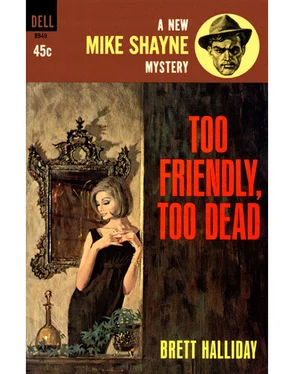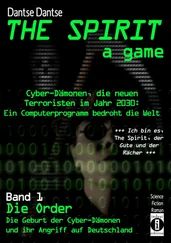Dan Fesperman - The Double Game
Здесь есть возможность читать онлайн «Dan Fesperman - The Double Game» весь текст электронной книги совершенно бесплатно (целиком полную версию без сокращений). В некоторых случаях можно слушать аудио, скачать через торрент в формате fb2 и присутствует краткое содержание. Жанр: Шпионский детектив, на английском языке. Описание произведения, (предисловие) а так же отзывы посетителей доступны на портале библиотеки ЛибКат.
- Название:The Double Game
- Автор:
- Жанр:
- Год:неизвестен
- ISBN:нет данных
- Рейтинг книги:3 / 5. Голосов: 1
-
Избранное:Добавить в избранное
- Отзывы:
-
Ваша оценка:
- 60
- 1
- 2
- 3
- 4
- 5
The Double Game: краткое содержание, описание и аннотация
Предлагаем к чтению аннотацию, описание, краткое содержание или предисловие (зависит от того, что написал сам автор книги «The Double Game»). Если вы не нашли необходимую информацию о книге — напишите в комментариях, мы постараемся отыскать её.
The Double Game — читать онлайн бесплатно полную книгу (весь текст) целиком
Ниже представлен текст книги, разбитый по страницам. Система сохранения места последней прочитанной страницы, позволяет с удобством читать онлайн бесплатно книгу «The Double Game», без необходимости каждый раз заново искать на чём Вы остановились. Поставьте закладку, и сможете в любой момент перейти на страницу, на которой закончили чтение.
Интервал:
Закладка:
He disappeared into the back. I listened for voices but heard only footsteps on a stairway, which soon faded into the depths of the store. Litzi surveyed the room.
“Wave to him,” she said.
I followed her gaze to a security camera mounted near the ceiling.
“You really think he’s watching?” I spoke out the side of my mouth.
“Of course.”
She stared defiantly. I looked away. A few seconds later I heard footsteps. Anton reappeared.
“He said to come up. But not for long. His health is not the best.”
We both started out across the room, but Anton stopped us.
“Not her. Just you.”
“That’s fine.”
I said it a little too eagerly. Trust was definitely an issue, and the worst part was that I’m sure Litzi had begun to notice, so I tried to soften the blow.
“It will probably be easier to get him to talk if there’s just one of us.”
She didn’t reply.
I followed Anton upstairs, then down a hall into the next building over, where we turned toward the back and climbed a second flight before again moving right and toward the rear. The scuffed old floors were warped and uneven, the air close and stale. At the end of the last passage the door opened onto a large room with a desk to one side and, at the far end, a daybed beneath a mullioned picture window overlooking a small green courtyard. Vaclav Bruzek was propped against a stack of pillows on the daybed. Papers were scattered in his lap, and a bowl of blueberries sat to his right. A cup of coffee, no longer steaming, sat on an end table atop a pile of books. The windowpanes were streaked and cloudy, and dead insects were scattered along the sill like knickknacks. I didn’t know if Bruzek was lying down by choice or necessity, but his color was reasonably good, his hair was combed, and his eyes were clear.
Anton departed without a word, shutting the door behind him. Bruzek stared at me for a few seconds, then glanced toward the wall at the foot of the bed, where a mounted black-and-white video screen displayed Litzi, arms folded. I half expected her to wave. Her instincts for this sort of thing were a little unnerving.
“Who’s the girl?” Bruzek asked. “She’s certainly not American.”
“Litzi Strauss, from Vienna.” I felt an obligation to establish her credentials, so I added, “She’s an archivist,” but Bruzek seemed unmoved. “She’s also an old friend.”
He took another look at her, squinting now.
“Strauss like the composer? She’s no Strauss. Bohemian is my guess.” He dipped into the blueberries with a gnarled right hand and tossed a few into his mouth, talking as he chewed. “This was never your father’s style, to travel in pairs. He did his own legwork. You have his eyes. His mouth, too. But obviously not his deliberation.”
“What kind of legwork?” If Bruzek could skip the polite preliminaries, so could I.
“This is for a magazine, you said?”
There was a knock at the door.
“Enter.”
Anton brought in a tray with two flowered china cups and a fresh pot of tea. He whisked away the old mug of coffee and set down the tray. Bruzek poured two cups, which lured me across the room. I took a seat in a creaking office chair at the foot of the bed.
“Yes,” I said. “Vanity Fair.”
“Anton said you’re writing about the old days, but that doesn’t tell me very much.”
“It’s a story about Ed Lemaster. About his CIA career.”
Bruzek raised an eyebrow as he stirred in a heap of sugar.
“Do you have a business card?”
“No, I’m a freelance. But I do have a letter of introduction.”
I got it out of my pocket. By now it was creased and wrinkled. Bruzek smoothed it in his lap, frowning at its condition in a way that only a keeper of old papers would do.
“If you plan on using this much longer you should have it laminated.”
He handed it back. Then, with a grimace and a groan, he worked himself into a more upright position.
“Please help me stand. I would feel much more comfortable speaking to you from behind my desk.”
I took his arm and helped him across the room to a ladder-back chair behind a huge mahogany desk to one side. Behind it was a high wall of bookshelves, stuffed full and leaning slightly, as if they might fall at any moment. Someone needed to shim them up. Bruzek was light but still wiry, and once he was on his feet he was surprisingly steady. I retrieved his teacup.
“I’ll be fine now. Pull your chair over.”
We settled into our new positions, and I saw right away why he’d requested the move. His chair was set high, mine low. He was now looking down at me, a surprisingly commanding presence for a man his age. He placed his arms on the desk and laced his fingers together, a pose of patience and calm.
“Well?” he said. “I presume you have questions.”
“Tell me how you first got to know Ed Lemaster. As a customer?”
“It was the mid-sixties, I can’t give you an exact year. He was quite a collector. Still is, I presume.”
“Did you know what he did for a living?”
“He never said.”
An artful evasion, but Bruzek spoke again before I could follow up.
“Let’s stop being so coy and genteel, shall we? I assume your father must have told you a few things or he wouldn’t have sent you here, and if your subject is Ed Lemaster, then you’re probably interested in his system for relaying messages. That was my only real role in his work. All those parcels for Dewey, correct?”
I wondered why he’d come to the point so readily-not that I was complaining.
“Who set it up?”
“I don’t know.”
“It wasn’t Ed?”
Bruzek shrugged.
“Well, yes or no?”
“No. Not directly. It was someone acting on his behalf. Ed had introduced us a few weeks earlier, during a buying trip. The next time the fellow showed up, it was to talk about the setup, and how it would work. ‘A friend,’ that’s all Ed ever called him, so I don’t have a name. But he paid well and he paid promptly, and his instructions were simple and clear. Every delivery was always for Dewey, and I was to always call the courier to make the pickup. What happened afterward I have no idea. Who it went to? No idea. What purpose it ultimately served? No idea.”
“Well, you must be able to recall something about this fellow. Was he American?”
“I don’t know. I don’t think so, but it wasn’t clear.”
“Oh, c’mon.”
“I’m telling you the truth. He was fairly nondescript. He was well dressed but nothing flashy or very expensive. No labels or obvious brands. No watch that I could see. He didn’t smoke, so there was no brand of cigarettes to give him away.” Bruzek had obviously given this matter some thought, which made me inclined to trust his answer. “He always spoke Czech with me. Not as a native, but fluently. His accent was indeterminate, almost as if he’d gone to school in many different places while he was growing up.”
Like me, I thought. Austrians always had trouble placing the accent on my German. Or, for that matter, like Bruzek, whose excellent English had a mixture of inflections, but sounded different from the way most Czechs spoke it.
“Was my dad the only courier?”
“No.”
“Who else?”
“That information is not readily available.”
“What’s that supposed to mean?”
“It means that to be sure of its accuracy I would have to look it up, and I am not prepared to do so.”
“Are you saying you kept records of these transactions?”
He scowled and picked a piece of lint off his shirt. He replied without looking up.
“Only because someone asked me to.”
“Do you still have them?”
He flicked the lint away. We watched it drift to the floor like a tiny parachute.
Читать дальшеИнтервал:
Закладка:
Похожие книги на «The Double Game»
Представляем Вашему вниманию похожие книги на «The Double Game» списком для выбора. Мы отобрали схожую по названию и смыслу литературу в надежде предоставить читателям больше вариантов отыскать новые, интересные, ещё непрочитанные произведения.
Обсуждение, отзывы о книге «The Double Game» и просто собственные мнения читателей. Оставьте ваши комментарии, напишите, что Вы думаете о произведении, его смысле или главных героях. Укажите что конкретно понравилось, а что нет, и почему Вы так считаете.












